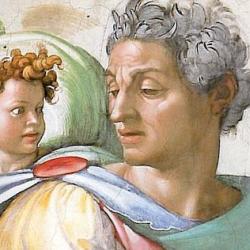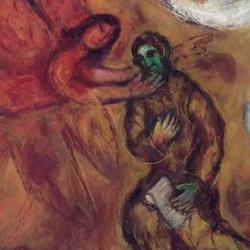In his Yahweh Is Exalted in Justice , Thomas Leclerc points out the links between the opening condemnation of corrupt Jerusalem in Isaiah 1 and the vision of a restored Zion in 2:1-4. Both use the combination “word of Yahweh and torah” (1:10; order inverted in 2:3), and these are the only places in Isaiah where this combination of terms appears. “Judge” and “decide”
also appear together, uniquely, in 1:17-18 and 2:4. The claim that “they will not learn war anymore” echoes back to 1:17, where Jerusalem is exhorted to “learn to do good,” suggesting that not learning war and learning to do good are two sides of the same coin.
The upshot of these verbal links is to associate the justice demanded of Israel domestically with the justice that Yahweh does among the nations. Isaiah 2:1-4 presents “the cosmic counterpart of the domestic description found in ch. 1: there, judges ‘judge’ the oppressed, while in ch. 2, YHWH ‘judges’ the nations and arbitrates for many peoples.” If we can press the analogy, it seems to suggest that Yahweh judges specifically on behalf of the beleaguered and vulnerable. Just as rulers in Israel are called to reprove the ruthless and plead for the widow, so the Lord reproves ruthless nations and fights for the oppressed; He judges the militarists and defends the non-combatants who get caught in bloodthirsty crossfire.










